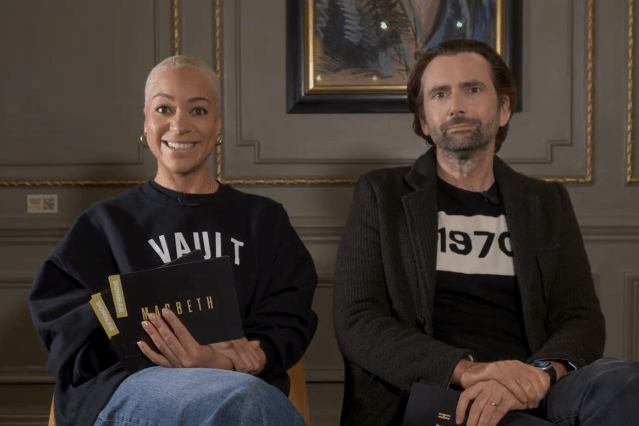
When Terence Frisby’s courtroom drama “Rough Justice” in James Larkin’s production first hit our stages last autumn, it was warmly received. There is one major cast change for the new tour which opened in Norwich; Ben Whitrow plays the judge who has to preside over what at first seems to be an open-and-shut case of child murder.
The victim is the brain-damaged son of (by his own admission) opinionated columnist and television “talking head” James Highwood and his less high-profile wife Jean. Highwood has chosen to be his own defence counsel, somewhat to the frustration of his solicitor Jeremy Ackroyd. It is, however, a situation which prosecutor Margaret Casely hopes to exploit to its utmost.
We the audience are in the situation of the jury, albeit one privileged to be flies-on-the-wall of the holding cell and so listeners to the conversations held inside it. Janet Bird’s realistic set works well as the awe-inspiring courtroom transforms (with considerable help from John Leonard’s sound effects) into a claustrophobic windowless space and back again.
Whitrow is thoroughly credible as the judge and there are telling characterisations of the medical professionals whose evidence is the first which we hear – Mary Lincoln as the paediatrician and Simon Murray as the forensic specialist. Lincoln in particular comes over as someone who cares as well as knows.
You can’t help feeling sympathy for Carol Starks as the woman, wife as well as mother, whose future as well as past and present are in such turmoil nor for David Michaels as the harassed Ackroyd.
Elizabeth Payne has the right degree of acerbity for the prosecutor whose objectivity in her official role – as Highwood gleefully points out – is flawed by her personal deeply-held convictions.
Tom Conti, who is the play’s producer as well as its star, gives us a man whose natural arrogance all-but predestines him for a fall. In classic tragedy this is called hubris. The modern equivalent is tall poppy syndrome.
Conti dominates the action just as the character he plays must have done throughout his professional career. But I’m not sure how much real sympathy one has for Highwood by the time the curtain falls.
Anne Morley-Priestman












